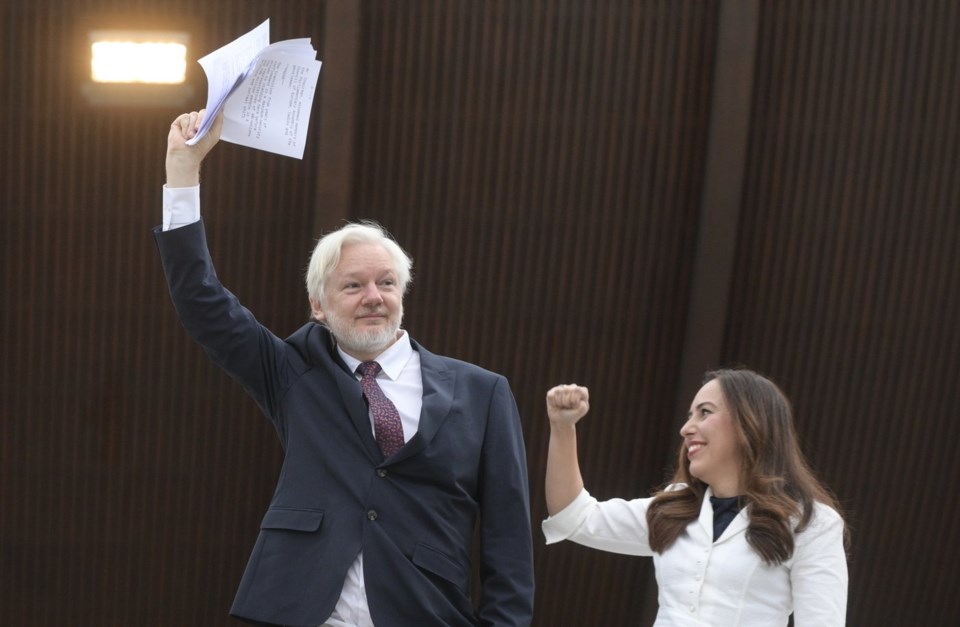NICE, France (AP) — WikiLeaks founder Julian Assange said Tuesday that he was freed after years of incarceration because he "pled guilty to journalism.”
Assange gave evidence of the impact of his detention and conviction on human rights to the legal affairs and human rights committee of the Parliamentary Assembly of the Council of Europe in Strasbourg, France. The Parliamentary Assembly includes parliamentarians from 46 European countries.
“I am not free today because the system worked,” Assange said in his first public remarks since he was released in June. “I am free today after years of incarceration because I pled guilty to journalism."
He added: “I pled guilty to seeking information from a source.”
Assange was released after five years in a British prison after he pleaded guilty to obtaining and publishing U.S. military secrets in a deal with Justice Department prosecutors that concluded a drawn-out legal saga. Prior to his time in prison, he had spent seven years in self-imposed exile in the Ecuadorian Embassy in London, where he claimed asylum on the grounds of political persecution.
The Australian internet publisher was accused of receiving and publishing hundreds of thousands of war logs and diplomatic cables that included details of U.S. military wrongdoing in Iraq and Afghanistan. His activities were celebrated by press freedom advocates, who heralded his role in bringing to light military conduct that might otherwise have been concealed.
Among the files published by WikiLeaks was a video of a 2007 Apache helicopter attack by American forces in Baghdad that killed 11 people, including two Reuters journalists.
But critics say his conduct put American national security and innocent lives — such as people who provided information to U.S. forces in Iraq and Afghanistan — at risk, and strayed far beyond the bounds of traditional journalism duties.
The years-long case ended with Assange entering his plea in a U.S. district court on the Northern Mariana Islands, an American commonwealth in the Pacific.
Assange pleaded guilty to an Espionage Act charge of conspiring to unlawfully obtain and disseminate classified national defense information. A judge sentenced him to the five years he had already spent behind bars in the U.K. fighting extradition to the United States.
Assange returned to Australia a free man in late June. At the time his wife, Stella, said he needed time to recuperate before speaking publicly.
His appearance on Tuesday comes after the Council of Europe's Parliamentary Assembly published a report on Assange's detention in a high-security U.K. prison for five years.
The assembly's human rights committee said Assange qualified as a political prisoner and issued a draft resolution expressing deep concern at his harsh treatment.
——
Hui reported from London.
Sylvia Hui And Barbara Surk, The Associated Press

